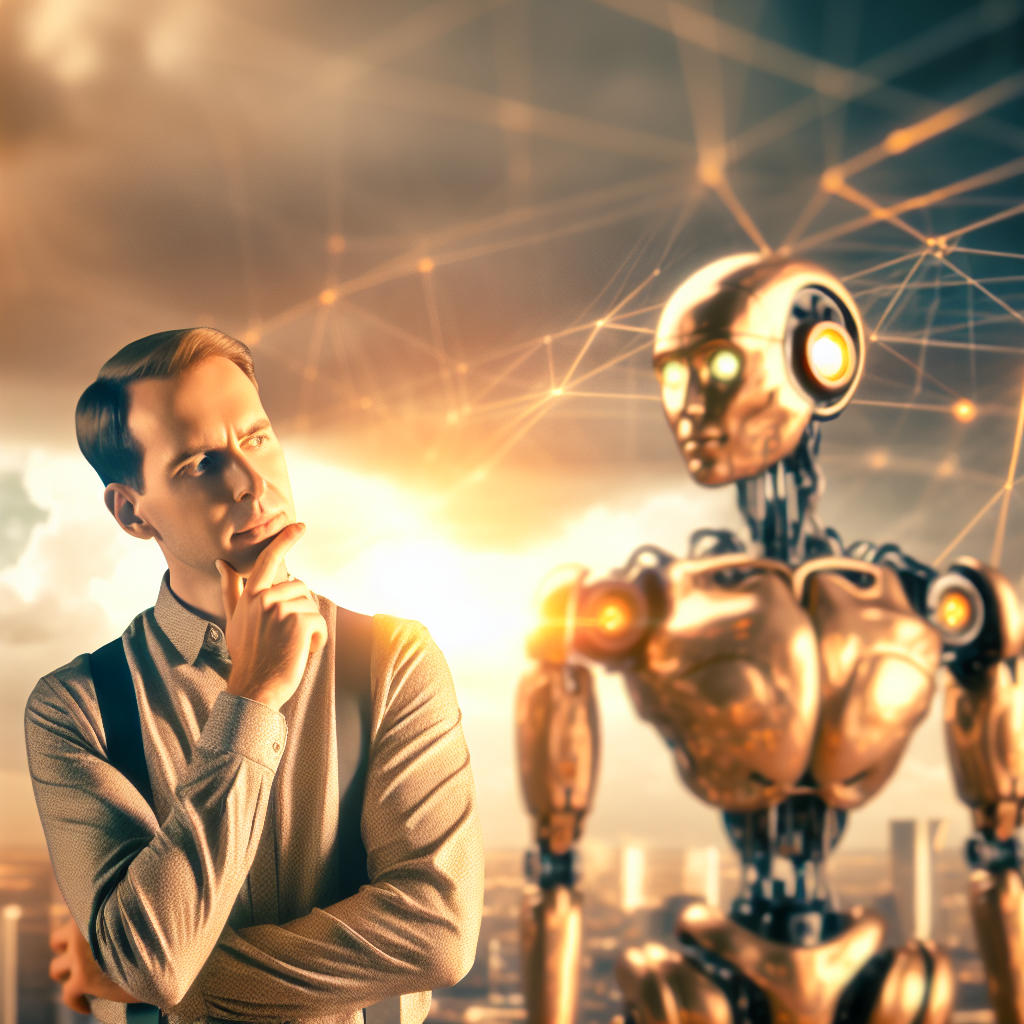
Understanding the Role of Artificial Intelligence in Modern Society
As advancements in artificial intelligence surge forward, the question arises — is AI merely a sophisticated tool, or is it evolving into an independent agent? This debate reflects critical concerns about the future of technology and its implications on industries, governance, and everyday life. In this article, we’ll explore both aspects to determine where today’s AI stands and what it may become tomorrow.
What Defines Artificial Intelligence?
Artificial intelligence, or AI, refers to machines programmed to mimic human cognitive functions such as learning, reasoning, problem-solving, and decision-making. Whether it’s recommendation algorithms on Netflix or self-driving cars, AI systems have infiltrated both trivial and substantial aspects of modern life. However, the nature of AI — whether it is a tool or an independent agent — is a nuanced discussion that requires deeper exploration.
Is AI Merely a Tool?
For many, AI is still viewed primarily as a tool — one that extends human capabilities rather than replaces them. Currently, most AI systems are narrow in scope and serve specific functions with no awareness or understanding beyond their domain. Here are some characteristics of AI as a tool:
- Designed with specific intent: AI is programmed to perform designated tasks and lacks awareness outside those parameters.
- Dependent on human input: AI systems require data, guidance, and modifications from humans to operate efficiently.
- Lack of self-awareness: Unlike humans, AI doesn’t understand the context of its operations or possess consciousness.
Examples of tool-based AI include:
- Chatbots used in customer service
- AI-based diagnostic tools in healthcare
- Recommendation systems on streaming platforms
This situational intelligence reinforces the viewpoint that AI is fundamentally a tool — albeit a powerful one.
AI as an Independent Agent: Is it on the Horizon?
In contrast, some believe that AI is evolving into an independent agent capable of actions beyond human control. This notion hinges on autonomy, adaptability, and the ability to make decisions in unstructured environments. But are we really at that stage?
Traits of AI as an Independent Agent
For AI to be considered an independent agent, it would need to demonstrate several key capabilities:
- Autonomy: The ability to make decisions independent of direct human oversight.
- Learning Across Domains: More than basic machine learning, the AI should be able to generalize knowledge to new, unrelated tasks.
- Goal Orientation: The AI would pursue self-generated goals, adapting strategies on its own.
- Ethical or Moral Reasoning: A fully independent agent might assess complex situations that involve ethical dilemmas.
Artificial general intelligence (AGI) — a theoretical AI that can understand and learn any intellectual task that a human can — is often considered the benchmark for independence. However, no current system has attained this level of sophistication.
The Reality: AI Is Still a Tool — For Now
Despite rapid developments, today’s AI doesn’t cross the threshold into independence. Human developers still guide, manage, and refine AI systems. While tools like AI in Business and AI in Healthcare show AI making impactful decisions, all actions are still tethered to human-defined objectives and guardrails. In short, AI remains under human governance.
Moreover, ethical frameworks and regulatory oversight further reinforce AI’s role as a tool. Several governments and organizations have already established ethical principles to govern the responsible use of AI, ensuring it remains under conscious human direction.
Key Factors Preventing AI From Becoming an Independent Agent
To fully understand why AI hasn’t transitioned into an autonomous entity, consider these limitations:
- Lack of Consciousness: AI doesn’t have emotions, intentions, or a sense of self.
- No Intrinsic Motivation: AIs don’t have goals unless explicitly assigned by programmers.
- Data Dependency: AI models require large datasets and can’t function well without them.
- Limited Generalization: Current AI systems are highly specialized and cannot seamlessly switch tasks like humans.
The Future: Will AI Become an Independent Agent?
The quest for AGI continues, with major tech companies and research institutions investing heavily in exploratory technologies. If AGI becomes a reality, AI could evolve into a genuinely independent agent. But as of now, this remains theoretical.
Until then, it is essential to:
- Establish robust AI ethics policies
- Ensure human-in-the-loop decision-making
- Promote transparency and auditability of AI systems
Whether AI ever assumes agency will depend not only on technological advances but also on how society chooses to integrate and regulate these systems.
Conclusion
So, is artificial intelligence a tool or an independent agent? The answer, at least for now, leans heavily toward AI being a powerful, adaptable, and transformative tool. While we may be edging closer to developing systems that approach independent functioning, the current generation of AI remains deeply intertwined with human direction and design.
Understanding this distinction is crucial as we shape the future of AI development, ethics, and governance. For more insights, visit our deep dive articles on the Ethics of AI and Future of Artificial Intelligence.
SEO Meta Description
Explore whether artificial intelligence is a tool or becoming an independent agent. Learn the traits, current realities, and future possibilities of AI.
SEO-Friendly URL
https://aidigestfuture.com/artificial-intelligence-tool-or-independent-agent
Related Articles from Trusted Sources
- MIT Technology Review – Is AI a Tool or an Agent?
- Nature – The Debate Around AI Autonomy
- Forbes – What Business Leaders Should Know About AI
- Brookings Institute – AI and the Common Good
- Carnegie Mellon University – Defining Artificial Intelligence
- Stanford News – Are Intelligent Agents Coming Soon?
- IBM – Understanding AI
- Microsoft Research – AI and Society
- Harvard University – The Ethics and Role of AI
- Oxford Future of Humanity Institute – The Future of AI
